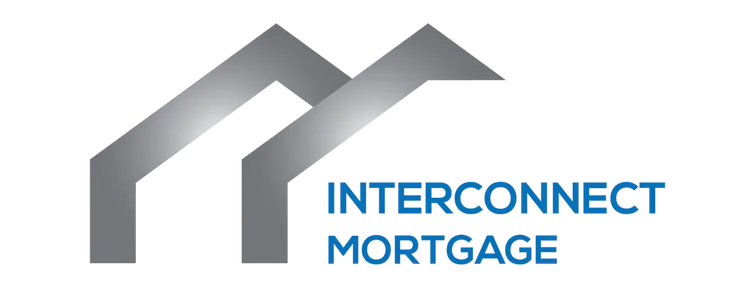
reverse mortgage refinance loan
Get a Refinance Review Today!!!
Looking To Refinance Your Home?
Find Out Your eligibility TODAY...
A reverse mortgage refinance loan, typically a Home Equity Conversion Mortgage (HECM), provides an attractive option for homeowners aged 62 or older looking to enhance their financial circumstances. These loans allow you to tap into your home's equity to secure more funds or lower your interest rate, while eliminating monthly mortgage payments. However, homeowners must continue to cover property taxes, insurance, and maintenance costs. The amount available depends on factors like age, home value, and current interest rates. The loan is repayable when the borrower moves out, sells the home, or passes away. Explore the benefits of a reverse mortgage refinance loan today, and optimize your financial freedom during your golden years.
Unlock the Potential Savings of Refinancing. Find Out Today If You're Eligible and Take Control of Your Home Finance. Don't Miss This Opportunity to Lower Your Monthly Payments and Improve Your Financial Future. Start Now!
There are several reasons why someone might want to do a mortgage refinance review:
Lower Interest Rates: If interest rates have dropped since you took out your original mortgage, you may be able to lower your monthly payments by refinancing at a lower rate.
Shorter Loan Term: Refinancing to a shorter loan term can help you pay off your mortgage faster and save money on interest over the life of the loan.
Change in Financial Situation: If your financial situation has changed, such as an increase in income or a decrease in debt, you may be able to qualify for a better interest rate or more favorable loan terms through refinancing.
Cash Out: Refinancing can also provide an opportunity to take cash out of your home equity to use for home improvements, debt consolidMobile Footeration, or other expenses.
STILL NOT SURE?
Frequently Asked Questions
Real questions from real clients about refinancing into a reverse mortgage — whether you're done with monthly payments or ready to unlock the equity in your paid-off home.
What are the requirements for a reverse mortgage in Florida?
To qualify for a reverse mortgage (specifically a HECM, or Home Equity Conversion Mortgage) in Florida, you’ll need to meet a few key criteria:
Age: At least 62 years old (for all borrowers on title).
Primary Residence: The home must be your primary residence — second homes and investment properties aren’t eligible.
Equity: You must have substantial equity in the home — either it’s paid off, or you owe very little on an existing mortgage.
Property Type: Must be a single-family home, FHA-approved condo, or certain multi-family homes (up to 4 units, if you live in one).
Financial Assessment: You’ll go through a light financial review to make sure you can maintain property taxes, homeowners insurance, and basic upkeep.
Counseling: HUD requires you to complete a reverse mortgage counseling session with an approved third-party agency before you apply.
What will disqualify you from a reverse mortgage?
Not living in the home as your primary residence — second homes, vacation homes, and rentals don’t qualify.
Being under age 62 — both borrowers on the title must meet the age requirement (unless one is removed from title, which comes with its own risks).
Too little equity — if you still owe too much on your current mortgage, there might not be enough room to do a reverse.
Ongoing property tax or insurance issues — if you’ve had trouble paying these in the past, the lender may require a set-aside or decline the loan.
The home doesn’t meet FHA standards — properties in poor condition, or non-FHA-approved condos, can be disqualified unless repairs are made.
Title issues — like being in a trust that’s not eligible, or having unresolved liens or judgments on the property.
What are three major requirements to qualify for a reverse mortgage?
You must be at least 62 years old
This applies to all borrowers on the title.
The older you are, the more money you may qualify for.
You must live in the home as your primary residence
Reverse mortgages are only for homes where you actually live — not rentals or second homes.
You must have significant equity in the home
Usually, the home is fully paid off or has a very low mortgage balance.
You’ll use the reverse mortgage to either eliminate that small balance or access cash from your equity.
What is the downside of a reverse mortgage?
It reduces your equity over time
Because you’re not making payments, the loan balance grows — which means less equity (and possibly less inheritance) down the line.
You’re still responsible for property taxes, insurance, and maintenance
If these aren’t paid, the loan can default. That’s why we walk you through the full picture upfront — no surprises.
It can impact what you leave behind
If leaving the home free and clear to your heirs is your top priority, a reverse mortgage might not be the best tool — or it needs to be part of a bigger plan.
Loan fees and interest can add up
While you’re not paying out of pocket, reverse mortgages typically have higher upfront costs than traditional loans (though they’re rolled into the loan amount).
How much can a 70 year old borrow on a reverse mortgage?
A 70-year-old can typically borrow a percentage of their home's equity, with the exact amount determined by a Principal Limit Factor (PLF) based on their age, current interest rates, and the FHA lending limit. For instance, a 70-year-old with a home worth $500,000 and a PLF of around 41% might access approximately $205,000. In 2025, the maximum FHA lending limit for a single-family home is $1,209,750.

What is the best age to get a reverse mortgage?
If you want to eliminate your mortgage payment ASAP, age 62–65 might make sense. You can free up monthly cash flow and age in place with less financial pressure.
If your priority is maximizing the loan amount, waiting until you’re older (70s or beyond) can help. The older you are, the more equity you can access.
If you own your home free and clear, sooner may be better — it allows you to unlock equity and create a tax-free income buffer while protecting future home value from downturns.

What happens if you inherit a house with a reverse mortgage?
You’re not personally responsible for the debt.
The loan is non-recourse, which means you’ll never owe more than the home is worth — even if the loan balance is higher.
You can keep the home.
You’ll need to pay off the reverse mortgage, usually by refinancing with a new loan in your name. HUD gives you at least 6 months, and often up to 12 months with extensions.
You can sell the home.
If you don’t want to keep it, you can sell it. Any proceeds above the reverse mortgage payoff go to the heirs — just like with a traditional loan.
Or you can walk away.

Who owns the house in a reverse mortgage?
Just like with a traditional mortgage, you remain the owner of the home when you take out a reverse mortgage.
Here’s what that means:
The title stays in your name — not the bank’s.
You can sell the home at any time, pay off the reverse mortgage, and keep any remaining equity.
You’re still responsible for property taxes, homeowners insurance, and basic upkeep.
The reverse mortgage is simply a loan secured by your home’s equity — not a transfer of ownership.

Who pays property taxes after a reverse mortgage?
Even with a reverse mortgage, you’re still responsible for paying your property taxes, homeowners insurance, and basic upkeep on the home.
Here’s the breakdown:
The lender doesn’t take over these payments — they just give you access to your equity.
You can use funds from the reverse mortgage to help cover these costs if needed.
If you fall behind on taxes or insurance, it could put the loan at risk of default — but we help clients plan for this from day one.

How do you pay back a reverse mortgage?
The good news? You don’t make monthly payments on a reverse mortgage while you live in the home.
The loan is repaid later — usually after you move out, sell the home, or pass away.
Here’s how repayment typically works:
When the home is sold, the loan gets paid off from the sale proceeds.
If your heirs want to keep the home, they can refinance it into a new mortgage or pay off the balance with other funds.
If the loan balance is more than the home is worth, FHA insurance covers the difference — no one has to come out of pocket or inherit debt.

Contact Us
5220 Hood Rd Ste 110
Palm Beach Gardens, Florida 33418


Interconnect Mortgage Inc. is an Equal Housing Lender. We fully comply with the Equal Credit Opportunity Act (ECOA) and all other Federal regulations. All applicants applying for credit from Interconnect Mortgage Inc. will never be discouraged on on the basis of race, color, religion, national origin, sex, military status ,marital status, age, or because you get public assistance. All information we request is voluntary, and will be kept confidential. For more information on the ECOA, please visit:
These materials are not from HUD, FHA, the USDA, or the VA. These materials were not approved by any government agency. They are independent of any government agency. We are not in any way affiliated with any organization listed or referenced within this website, including
HUD/FHA/USDA/VA. The inclusion of various education, information, web links, or materials are not an endorsement of the Sender or any of its employees or business partners.
*When refinancing your existing loan, it's important to understand that while your monthly payments may decrease, the total finance charges you pay over the entire life of the loan could ultimately be higher.
For information directly from HUD/FHA, visit https://www.hud.gov/guidance
For information directly from the VA, visit http://www.benefits.va.gov/HOMELOANS/
For information directly from the USDA, visit https://www.usda.gov/

© Copyright 2026 | Interconnect Mortgage Inc. | All rights reserved.
© Copyright 2026 | Interconnect Mortgage Inc. | All rights reserved.